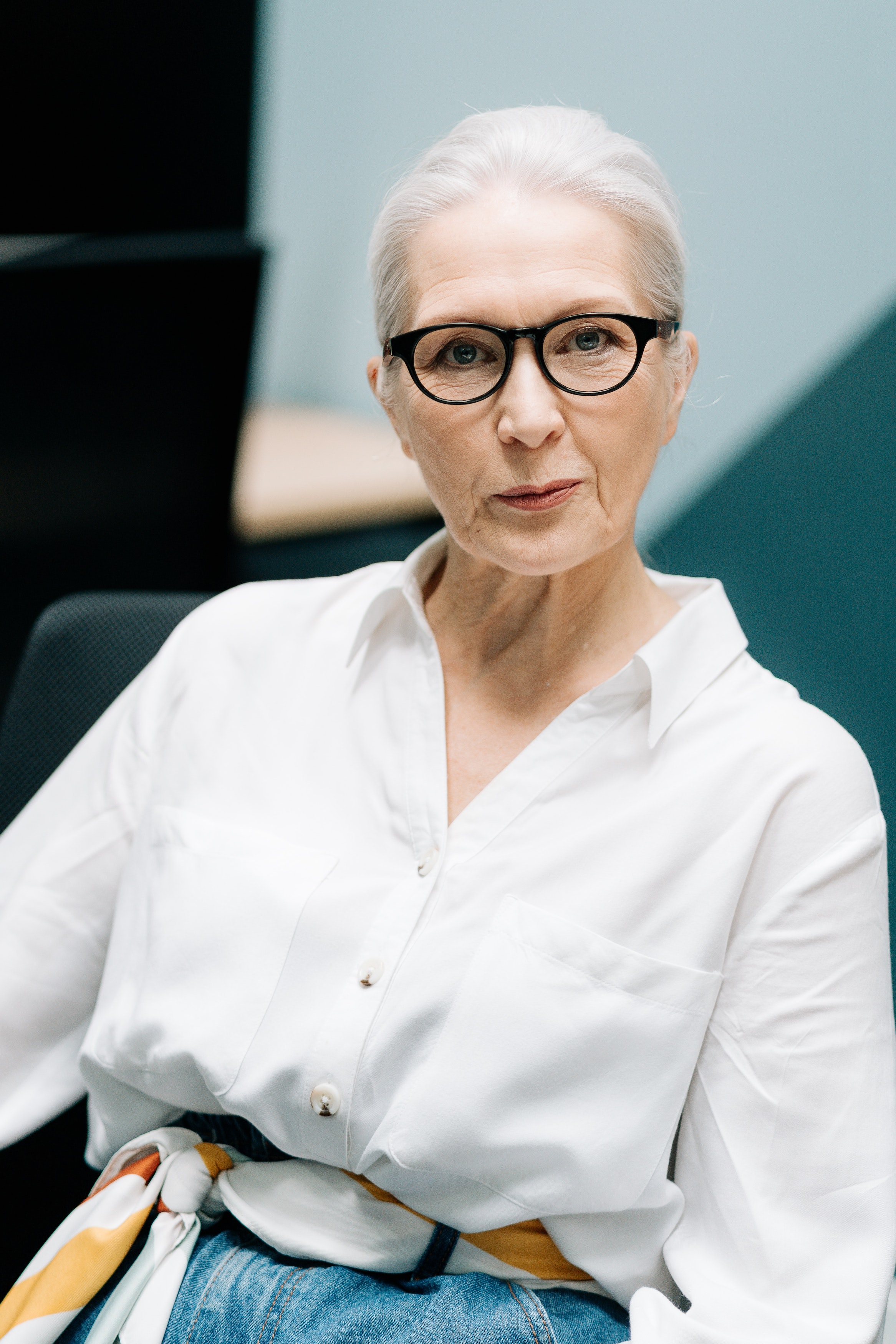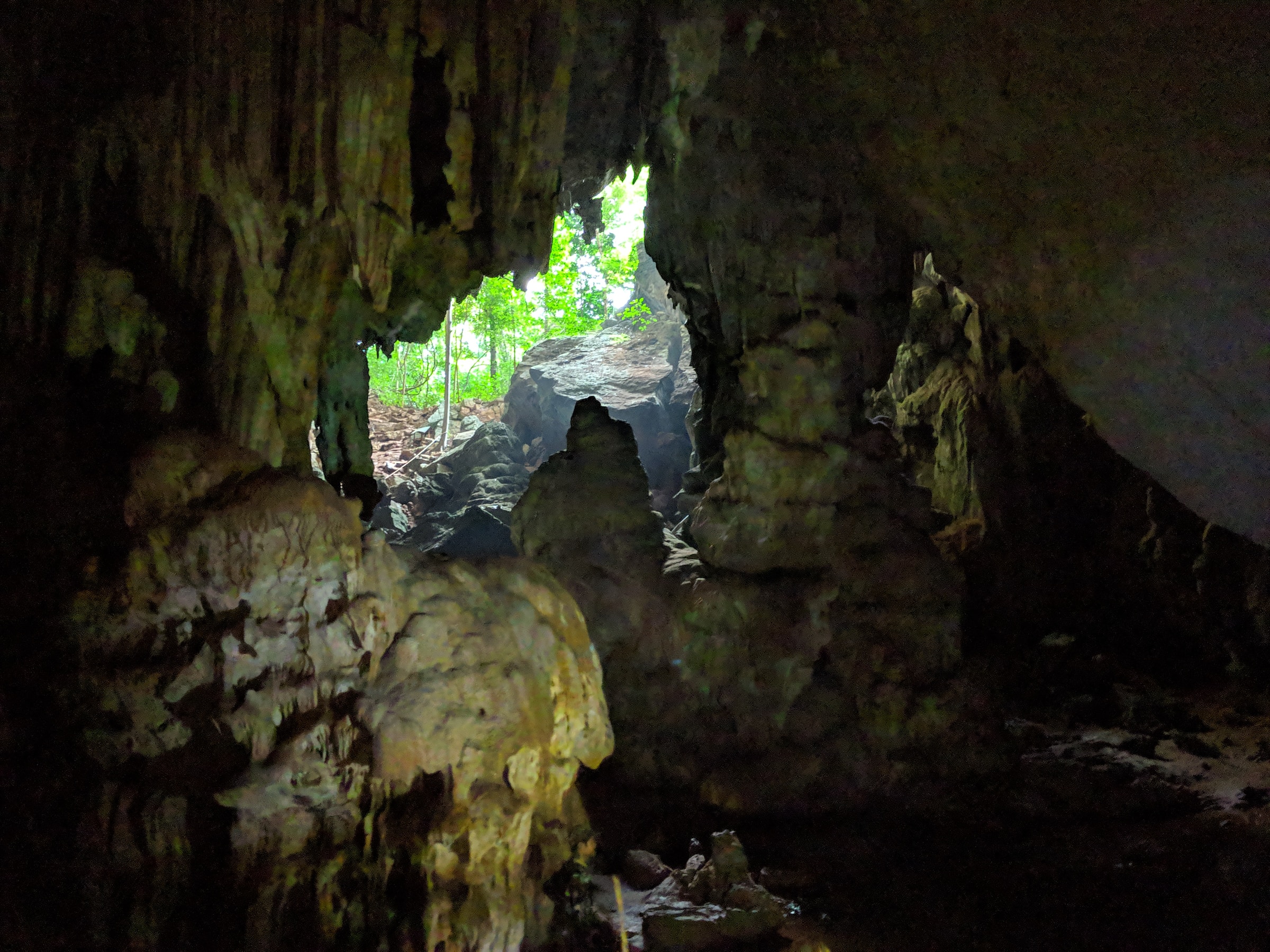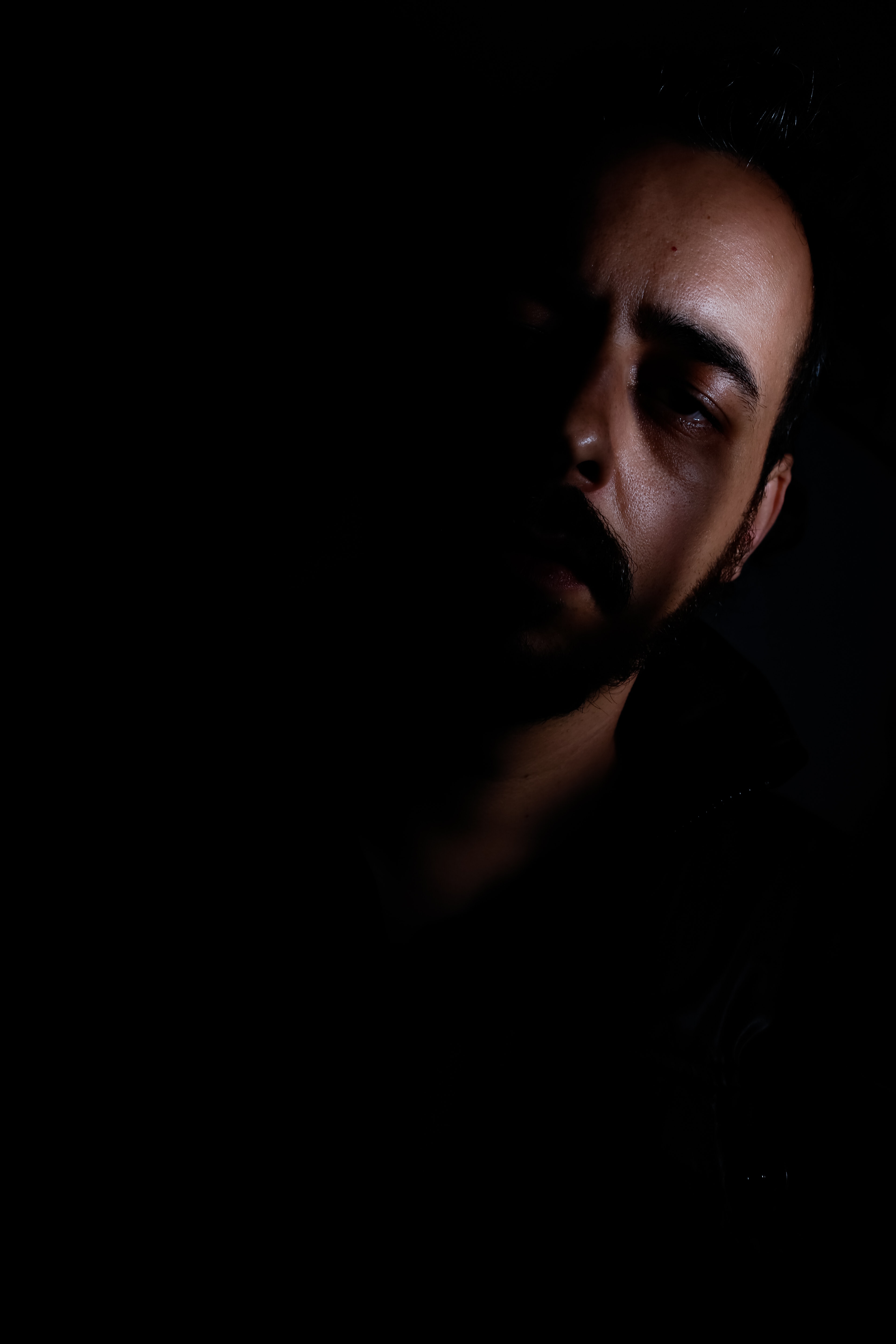Maria heard a knock on her door and her son calling out to her two years after his death. When Maria answered the door, she found her son standing alive before her eyes.
“Mom, it’s me!” Sebastian’s voice called, and Maria rushed to open the door without thinking twice, even though it was late at night.
Her son indeed stood at the doorstep, smiling, and Maria’s sobs rocked through her body as she hugged him.
“Mamá,” he softly said as a few tears shed from his eyes.
They eventually sat on the couch, and Maria couldn’t take her eyes off her son, who was scruffier than ever…

“Mom, I know what you did to get me back! But how did you do it?” he asked with a smile, despite the tears in his eyes. “I’d lost hope myself. I thought I’d be taken through the border and never see you again.”
“It wasn’t easy, my baby. Two years ago, they sent me ‘your ashes.’ I thought that was the end, but I saw your picture four months ago and knew I couldn’t lose hope…” Maria began, wiping her tears.
On a random day three months ago, Maria was reading a magazine about Columbia.
“Cúcuta is a city near the Venezuelan border,” she read aloud and skimmed through images. The article stated that many were Venezuelan immigrants, some of whom walked to Colombia to find better lives. But among the clearly tired people was… Sebastian.
Maria jumped from her sofa, almost tripping as she rushed to a nearby lamp to see the photo better. The photographer focused on several people who were helping an immigrant family. Sebastian was off to one side, not blurred. Her eyes went to the bottom of the picture, which luckily included a date.
Sebastian had a Ph.D. in Ornithology and had left home to study Colombia’s native birds. However, he disappeared soon after, and some authorities called her, telling her he was dead. Then his ashes came in the mail, completely shattering Maria on the inside.
But now she knew her son was alive and immediately booked a ticket to Cúcuta, Columbia, to find out what had happened to him.
***
Detective Ramirez sighed as he viewed the files on Sebastian’s case. According to the original investigation, Maria’s son had disappeared in the Norte de Santander area and was declared dead when they found a body. But the detective turned to the magazines and the pictures Maria had provided. It was Sebastian, although he looked skinny and messy.
”Señora Maria, your son’s body was found with his I.D. This doesn’t make much sense,” he said, refusing to reopen the case. “This picture must be older.”
“I know the ashes I received didn’t belong to Sebastian, and that picture is proof! You need to find him!” she shouted.

“Don’t yell at me! Getting a loved one’s ashes is better than nothing. There’s nothing else to investigate!” he exclaimed angrily, frowning and snapping the case file close.
“I will not rest until I find out what happened to my kid! Mi hijo está vivo y nadie podrá detenerme (My son is alive, and no one will be able to stop me)!” she screamed, pointing her finger at the detective. ”I know his original route. I’ll go find him myself!”
She turned to storm out of his office, but the detective stopped her. “What happened to your son on that route could happen to you,” he warned her.
She gulped at that, remembering what she had read about the kinds of groups operating at the border between Colombia and Venezuela. “But I’m a mother. I can’t stop,” Maria said with trembling lips and stormed out.
Maria’s rented old SUV backfired while she drove through the road. She decided to start early so that she could see her map, where Sebastian had shown her the exact routes he would take.
At the end of the dirt road, she had to grab her bag with water and food and continue the journey on foot. The sun shone harshly, and sweat covered her entire shirt. Still, there was no stopping.
When Maria finally stumbled upon a few rock formations, the sun had hidden behind a few clouds. She got close to the rocks, looking for somewhere to sit, but there was an opening—a cave.
Stepping inside, Maria found her missing son’s bag, which brought tears to her eyes. “Oh my baby, you were here!” she exclaimed, plopping to the floor as she held the bag tightly to her chest. She also found his camera bag, which was empty except for several SD cards.
Taking the pocket knife, torch, and lighter she found in Sebastian’s excursion bag and hiding the SD cards in her bra, Maria exited the cave to find her son, thinking the cards would convince Detective Martinez that Sebastian was alive.

“¿Quién está ahí (Who’s there)?” a man’s voice boomed, stopping Maria in her tracks while she was heading to her SUV. Suddenly, several men dressed in cargo attire surrounded her, pointing their guns at her.
Maria begged them to let her go, but they shoved her into a truck and blindfolded her. Then the vehicle began moving.
”We take her to San Cristóbal with ‘El Niño,’ and we get some money,” one of the men said, waking Maria from sleep. She didn’t realize when she dozed off.
”Don’t be stupid, Emiliano. ‘El Niño’ won’t use such an old woman for his things,” their boss laughed, and the rest followed.
”What do you suggest, Rogelio?” the boss then asked.
”I take her and solve this problem. You know me, boss. It’ll be quick,” Rogelio said in a low, chilling tone.
The truck started moving again, and after a dangerous curve, Maria’s body plummeted to one side, making things worse, but she couldn’t stop trying to untie the rope around her hands.
When the vehicle stopped, a pair of hands grabbed her ankles and pulled her from the truck. “DON’T TOUCH ME!” she yelled.
”Lady, calm down,” Rogelio hushed, lifting her body as if she weighed nothing and setting her on the ground.
”You speak English?” Maria asked as he rounded her and freed her hands unexpectedly, then he removed her blindfold.
“Yes, but we don’t have time. You’re gonna run as fast as you can,” he told Maria firmly, pointing in a particular direction. “That’s crossing the border to Venezuela. Knock on the door of a red brick house with a plantain tree. Tell them Rogelio sent you, and they’ll help you return to Colombia.”
“Why are you helping me?” Maria asked him in shock.
”I’m not one of them. I’m undercover,” the man lowered his voice even more. ”I’m in deep with this cartel, but you’re lucky I was with them tonight.”

“Have you seen my son, Sebastian? Earlier, when y’all were talking, you mentioned a gringo kid. I came to find him,” Maria said, not caring about his scary words, and told him everything about her meeting with Detective Ramirez. ”Rogelio, I need help finding my son.”
“My name is not really Rogelio. You need to run because I have to get back right now,” the agent stated.
”Ok, I’ll run, but take this, please,” Maria reached into her bra and handed over the SD cards to him. “These belong to my son.”
“Maria, my team will destroy this cartel from the inside. I can’t promise your son is alive. But I’ll try,” he promised and used his nose to point back towards the border. “I’ll have to fire some gunshots, so don’t yell or be startled, either.”
***
“I ran to that house, and the family there helped me return to Cúcuta. But I wasn’t sure if I’d done the right thing by giving those cards to him.”
Thank you, Mom, for saving me,” Sebastian choked on his words. “I would’ve died without you.”
“And about the I.D…” he said during dinner. “It must’ve been them, Mom. They didn’t want anyone to look after me. On my third research day, I was deep in the forest, covered in leaves, down on the floor, hiding, and trying to find this bird when a truck appeared out of nowhere.
“I saw some guys talking, and I had no idea what they said, but I recorded everything. And then I saw them exchanging stuff. The locals told me we were near some coca plantations, so what they were doing was clear, even if I couldn’t understand most of their rapid-fire Spanish.
“The trucks flew away, and I stayed put for several more minutes. Then I ran back to my shelter. I found these cave formations. I stayed there for a while, crazy afraid, and watched the footage again. Then, I took it out of the camera and stored it in my bag.”
”Were you alone camping?” Maria asked.

”We had separated to find certain types of birds on our own, but we were supposed to meet a few days later,” Sebastian explained. “But then I left the cave to the same spot where I was trying to see the bird, and they grabbed me.”
”That means they spotted you,” Maria suggested.
”I think so, too. But I don’t think they saw where I was hiding, or they would’ve ransacked that place,” Sebastian sighed.
”Were you with them this entire time?” she asked.
He nodded. “I thought I was done, but one of them had an idea to keep me so that I could run some deals. I looked different. They thought nobody would suspect me. Most of the time, they held me with some other people. Sometimes, it was bad, Mom,” Sebastian revealed. ”I won’t tell you everything, but they took me out to the streets sometimes to make some deals. I could walk among crowds without looking out of place or too dangerous.”
”That’s how that photographer must have captured you,” Maria stated. “Oh, dear.”
“Maybe. I was a slave to them. As long as I behaved, they treated me fine. But one day, these guys, yelling in Spanish and English, raided the plantation, and then this guy came and asked me if I was Sebastian. He said, ‘Everyone here is free because of Maria.’ You saved like 20 people being held hostage.”
“Oh, that must be Rogelio! I wish I knew his real name!” Maria said as a new round of tears popped up.
“He also said the videos I took were the only reason they could raid the plantation. Growing coca leaves is technically illegal, but many families depend on that agriculture, so authorities look at other ways, unless it’s drugs. The exchange I recorded sealed the deal. The agent said some policemen were also in on the deal, so he said I couldn’t trust many people because he didn’t know who was covering things up.”
“You’re not going back to Colombia ever!” she scolded humorously as he began eating again.
“No, experiencing Colombia was fantastic in the beginning,” Sebastian expressed vehemently. “We can’t let this experience destroy our image of a whole country. Horrible things happen everywhere, and you can’t let the bad stop you from finding the good.”



